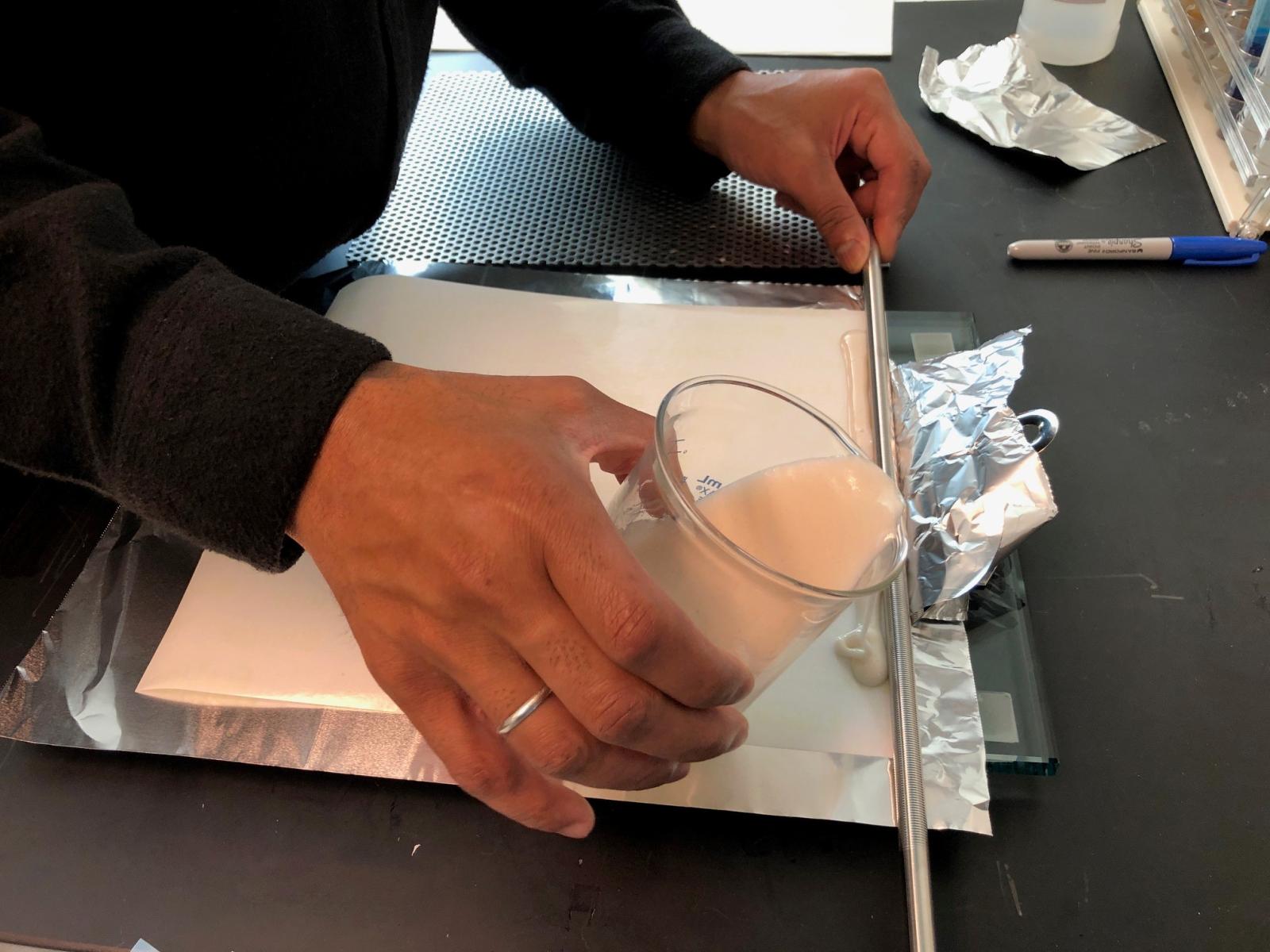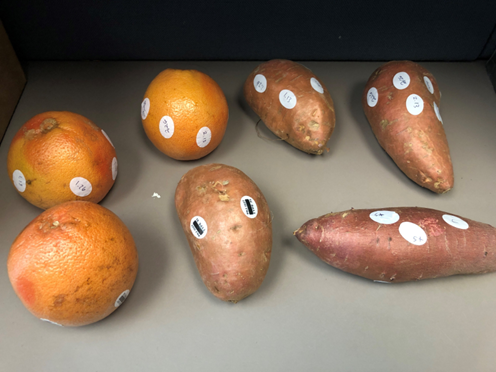Helping Reduce Methane Emissions by Solving a Sticky Problem for U.S. Produce Exporters

We see them every time we purchase fresh fruits and vegetables: price look up (PLU) labels. The little coin-size stickers are stuck to everything from apples, bananas, and cantaloupes to watermelons, yams, and zucchini.
According to the Sustainable Packaging Coalition, PLU labels have been used globally for more than 30 years with the International Federation for Produce Standards issuing more than 1,400 PLU codes.
PLU labels offer many benefits to the agriculture, trade, and retail industries. The labels lower costs and optimize handling by digitizing supply chain management, minimizing packaging, and reducing time at the point of purchase – something we can all appreciate when rushing through the self-checkout lane. When it comes to agricultural trade, PLU codes also help exporters and importers consistently and quickly identify and track products across the globe. Whether you purchase a Red Delicious apple in the United States, Mexico, or Vietnam, the PLU code is the same.
Unfortunately, PLU labels have also created a sticky situation for composters, the environment, and even U.S. exporters. Why? PLU labels are not biodegradable, which means they contaminate produce that’s tossed in the compost pile or sent to commercial composting facilities. As a result, the produce generally ends up in landfills, which creates more food waste, increases methane emissions, and negatively affects climate change.
Several countries, led by France and New Zealand, have enacted legislation that will require PLU labels to be certified home compostable. This has posed a challenge for U.S. exporters by creating a trade barrier that puts millions of dollars of U.S. fresh fruit and vegetable exports at risk. The U.S. Department of Agriculture (USDA) has stepped in to help solve the problem in an effort to help reduce trade barriers and mitigate climate change.
With research and development funds provided by USDA’s Foreign Agricultural Service’s (FAS) Technical Assistance for Specialty Crops Program, FAS and USDA’s Agricultural Research Service are working to produce compostable PLU labels. FAS and ARS are collaborating with the International Fresh Produce Association (IFPA) and Sinclair Systems International to meet the EU standards. The goal is to develop adhesives that are both food-safe and compostable. When achieved, this will allow American companies to export fruits and vegetables as usual while helping to decrease food waste and methane emissions.
To date, the research team has tested more than 100 formulas to determine the top three adhesives that produce the desired biodegradation process. The team is performing final tests to confirm that these bio-based adhesives pass the home-compostable degradation test. They will then tackle scale-up adhesive coating trials as a key milestone toward commercialization.
USDA has also coordinated closely with the IFPA on outreach and education to U.S. produce exporters to demonstrate the benefits of greener, environmentally friendly PLU labels and adhesives. Once implemented, the new PLU labels and adhesives will solve a sticky problem for U.S. exporters and ultimately help reduce methane emissions, another step towards more sustainable agricultural production and trade.
PLU Label and Adhesive Research in Action


